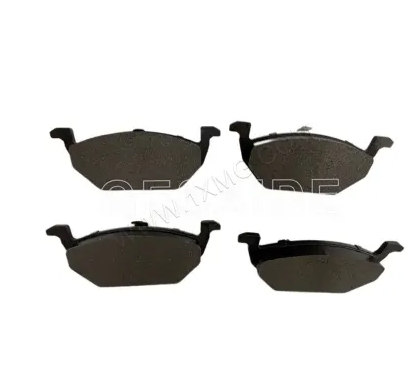Mar. 11, 2024
How to Choose the Right Brake Pads?
Selecting the appropriate brake pads for your vehicle is crucial for ensuring optimal performance, safety, and longevity. With a myriad of options available on the market, understanding key factors and considerations can help you make an informed decision that meets your driving needs and preferences.

Understanding Brake Pad Composition
Brake pads play a critical role in the braking system by providing friction against the brake rotors, which slows down and stops the vehicle. These pads are typically composed of various materials, including organic, semi-metallic, and ceramic compounds. Each type of material offers unique characteristics in terms of performance, durability, and noise levels.
Consideration of Driving Style and Conditions
When choosing brake pads, it's essential to consider your driving style and typical driving conditions. For example, if you frequently engage in aggressive driving or towing heavy loads, you may require brake pads with higher heat tolerance and enhanced stopping power, such as semi-metallic or ceramic pads. On the other hand, for everyday commuting in urban areas, organic brake pads may provide a quieter and smoother braking experience.
See also:Consultation with Automotive Professionals
Seeking advice from automotive professionals, such as mechanics or brake specialists, can provide valuable insights into selecting the right brake pads for your vehicle. These experts can assess factors such as your vehicle's make and model, driving habits, and performance requirements to recommend the most suitable brake pad options. Additionally, they can offer guidance on proper installation and maintenance practices to optimize brake pad performance and longevity.
Comparison of Performance and Cost
While performance is paramount when choosing brake pads, it's also essential to consider cost-effectiveness. Higher-quality brake pads may come with a higher price tag upfront but could offer superior performance and durability, resulting in long-term savings and safety benefits. Conversely, opting for cheaper, lower-quality brake pads may save money initially but could compromise braking performance and require more frequent replacement.
Conclusion
In conclusion, selecting the right brake pads involves careful consideration of factors such as composition, driving style, conditions, professional advice, and cost-effectiveness. By understanding these key elements and conducting thorough research, you can make an informed decision that prioritizes safety, performance, and longevity for your vehicle's braking system. Ultimately, investing in high-quality brake pads tailored to your specific needs and preferences can enhance driving confidence and ensure smooth, reliable braking in various driving scenarios.
Previous: None
Next: None
Related Articles
If you are interested in sending in a Guest Blogger Submission,welcome to write for us!
All Comments ( 0 )